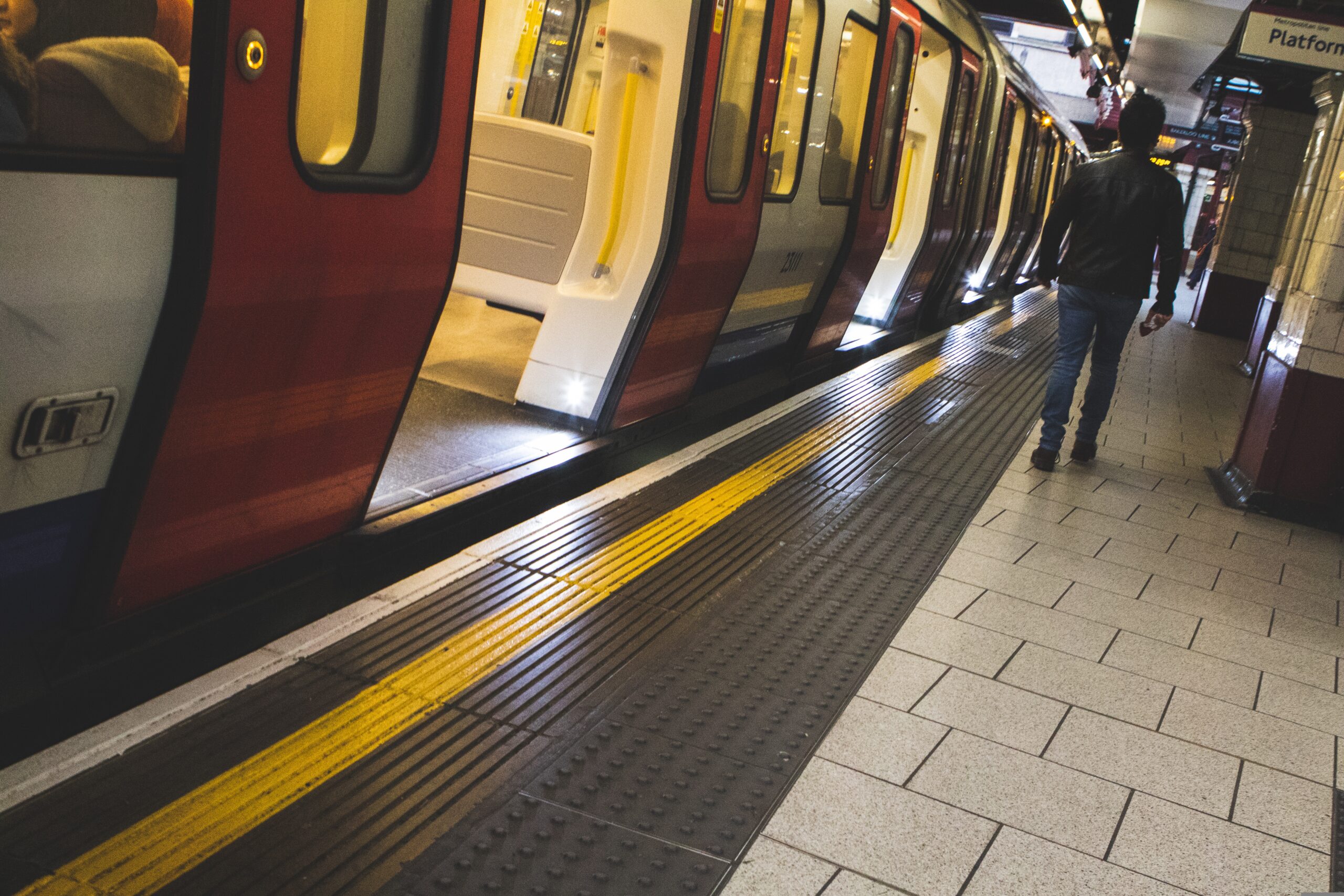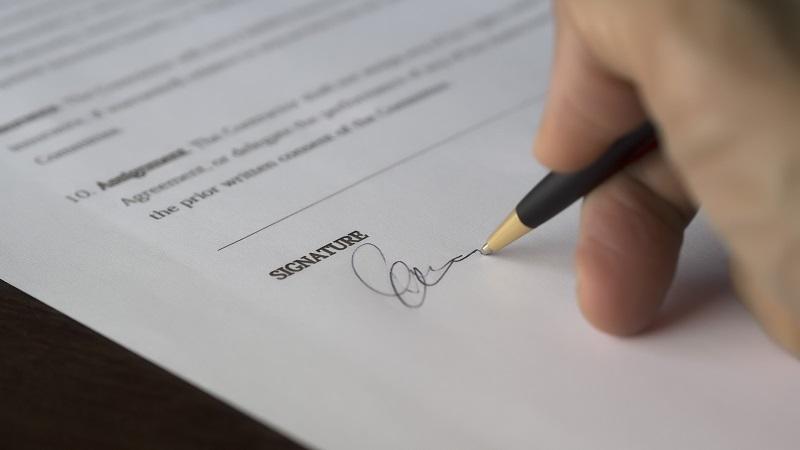The capital’s transport authority, which runs the tube, Elizabeth Line, buses, trams and much more, is interested in deploying new and innovative digital systems to help detect and discourage evasion
Transport for London is exploring the use of technology and data to not only improve its ability to catch fare-dodgers, but also help change the behaviour of those attempting to travel without paying.
The capital’s transport authority – which operates the London Underground, Overground and Elizabeth Line train networks, as well as buses, trams, riverboats, hire bikes, cable cars, dial-a-ride services and more – is seeking to engage with potential providers of digital or data-based systems.
Guiding this engagement will be a central question: “How might TfL use technology and data to better understand fare evader behaviour and then drive changes in fare evader behaviour through interventions?”
Data for 2022/23 shows that the organisation lost between £130m and £150m to fare-evasion during the year, equating to 3.9% of all journeys. The authority’s aim is to reduce this figure to 1.5%.
A newly published commercial notice reveals that TfL currently has in place various measures to tackle fare-dodging, including improvements to ticket gates, technology to support investigations, and so-called “behavioural” programmes that try to prevent evasion by public signage and other communications initiatives.
Related content
- Transport for London sticks to Oyster in new fare collection system
- Transport for London explores algorithm-powered buses
- TfL looks to implement real-time data on capital car journeys
But the organisation believes that additional use of tech or data could help support or expand these activities.
The notice adds: “Specifically, we would like to know if there are technologies/solutions that TfL can utilise that will: better detect fare evaders across our different modes (while TfL runs an integrated transport network, the design and operation of each mode on our network is unique); provide data and insight to support new interventions that will change the behaviour of fare evaders; increase the deterrent of fare evasion taking place on our network; [and] drive changes in fare evader behaviour.”
To find out more about these technologies and how they might be deployed, the transport authority has created a market sounding questionnaire (MSQ).
Potential providers interested in taking part in the engagement exercise by completing the questionnaire are asked to email MSQinnovation@tfl.gov.uk with the subject heading Fare Evasion Data MSQ Request followed by their company name. Submissions must be completed by 16 August.
TfL has not yet committed to undertaking any formal procurement process, but will explore the findings of the MSQ before deciding on its next steps.
Senior TfL officials last year revealed that the organisation has found success in identifying and catching fare-evaders as a result of an increase in offenders recording themselves in the act and posting the clips to social media.
Operational policy manager Jon Poett said: “Working with our policing partners, legal team and we’ve had success with our internal investigation team actually stopping a few people who have recorded themselves fare evading.”





How can I find out more about it?
Hey! I know this is kinda off topic however , I’d figured I’d ask. Would you be interested in trading links or maybe guest authoring a blog article or vice-versa? My blog addresses a lot of the same topics as yours and I think we could greatly benefit from each other. If you happen to be interested feel free to send me an email. I look forward to hearing from you! Awesome blog by the way!
You actually make it seem so easy with your presentation but I find this topic to be really something that I think I would never understand. It seems too complicated and extremely broad for me. I’m looking forward for your next post, I will try to get the hang of it!
Great paintings! This is the type of information that should be shared across the internet. Shame on the search engines for now not positioning this post higher! Come on over and discuss with my web site . Thank you =)
Thanks for the thoughts you write about through this site. In addition, quite a few young women exactly who become pregnant tend not to even try and get medical health insurance because they worry they would not qualify. Although a few states now require that insurers produce coverage in spite of the pre-existing conditions. Rates on these kind of guaranteed programs are usually greater, but when considering the high cost of medical care it may be any safer way to go to protect your own financial potential.
Hello. fantastic job. I did not imagine this. This is a remarkable story. Thanks!
Sweet blog! I found it while searching on Yahoo News. Do you have any tips on how to get listed in Yahoo News? I’ve been trying for a while but I never seem to get there! Cheers
Nice post. I was checking continuously this weblog and I’m impressed! Extremely helpful info particularly the ultimate phase 🙂 I deal with such info a lot. I was looking for this certain info for a very long time. Thank you and good luck.
Hey! Do you use Twitter? I’d like to follow you if that would be okay. I’m undoubtedly enjoying your blog and look forward to new posts.
Thank you for the auspicious writeup. It in truth used to be a entertainment account it. Look complicated to far delivered agreeable from you! By the way, how can we keep up a correspondence?
Nice blog here! Also your web site loads up very fast! What host are you using? Can I get your affiliate link to your host? I wish my web site loaded up as quickly as yours lol
Mexican Easy Pharm: mexican drugstore online – mexican border pharmacies shipping to usa
mexico drug stores pharmacies https://mexicaneasypharm.com/# mexican pharmaceuticals online
п»їbest mexican online pharmacies
buying prescription drugs in mexico online https://mexicaneasypharm.com/# Mexican Easy Pharm
buying from online mexican pharmacy
mexico drug stores pharmacies https://mexicaneasypharm.com/# pharmacies in mexico that ship to usa
mexican pharmaceuticals online
mexico drug stores pharmacies https://mexicaneasypharm.com/# mexican mail order pharmacies
pharmacies in mexico that ship to usa
https://predpharm.com/# prednisone 5mg daily
prednisone 20mg nz
https://cytpharm.com/# Cyt Pharm
50mg prednisone tablet
https://cytpharm.com/# Cyt Pharm
canine prednisone 5mg no prescription
https://predpharm.shop/# Pred Pharm
how to buy prednisone online
https://dappharm.com/# cheap priligy
prednisone 10 mg tablet cost
https://cytpharm.com/# Cyt Pharm
prednisone for sale
https://semapharm24.com/# Sema Pharm 24
buy prednisone 50 mg
https://cytpharm.com/# buy cytotec online
prednisone acetate
http://kamapharm.com/# Kamagra 100mg price
prednisone 10 mg tablet cost
https://predpharm.shop/# 40 mg daily prednisone
5 mg prednisone daily
https://predpharm.shop/# PredPharm
prednisone online australia
http://semapharm24.com/# buy semaglutide
brand prednisone
http://cytpharm.com/# buy cytotec online
prednisone 10mg tablet cost
https://cytpharm.com/# buy cytotec online
purchase prednisone 10mg
https://dappharm.shop/# cheap priligy
5mg prednisone
http://farmabrufen.com/# BRUFEN prezzo
Farmacia online piГ№ conveniente
https://farmaprodotti.com/# Farmacia online piГ№ conveniente
migliori farmacie online 2024
https://farmaprodotti.com/# acquisto farmaci con ricetta
Farmacia online miglior prezzo
https://farmatadalitaly.com/# farmaci senza ricetta elenco
Farmacie on line spedizione gratuita
http://farmatadalitaly.com/# Farmacia online piГ№ conveniente
farmacia online senza ricetta
farmacie online sicure: Farm Tadal Italy – farmacia online
farmacia online piГ№ conveniente Farma Prodotti acquisto farmaci con ricetta
Most casinos offer convenient transportation options.: phmacao club – phmacao com login
The casino atmosphere is thrilling and energetic. http://jugabet.xyz/# Los torneos de poker generan gran interГ©s.
Players must be at least 21 years old.: taya777.icu – taya777.icu
https://jugabet.xyz/# Es comГєn ver jugadores sociales en mesas.
Players must be at least 21 years old.
taya365 com login taya365 com login Many casinos have beautiful ocean views.
Cashless gaming options are becoming popular.: taya777 app – taya777 login
Game rules can vary between casinos. https://phtaya.tech/# High rollers receive exclusive treatment and bonuses.
The casino industry supports local economies significantly.: taya365 – taya365.art
http://taya365.art/# п»їCasinos in the Philippines are highly popular.
High rollers receive exclusive treatment and bonuses.
The Philippines offers a rich gaming culture.: taya777 app – taya777 login
https://phtaya.tech/# Players must be at least 21 years old.
Responsible gaming initiatives are promoted actively.
Live music events often accompany gaming nights. http://jugabet.xyz/# Los jackpots progresivos atraen a los jugadores.
Casino visits are a popular tourist attraction.: taya365 com login – taya365 com login
phtaya casino phtaya login Players can enjoy high-stakes betting options.
http://taya365.art/# Many casinos have beautiful ocean views.
The ambiance is designed to excite players.
Many casinos have beautiful ocean views.: taya777 login – taya777
Live dealer games enhance the casino experience. https://phmacao.life/# High rollers receive exclusive treatment and bonuses.
The Philippines has a vibrant nightlife scene.: phtaya casino – phtaya.tech
https://taya777.icu/# The casino scene is constantly evolving.
Slot tournaments create friendly competitions among players.
Gaming regulations are overseen by PAGCOR.: phmacao com login – phmacao
The Philippines has a vibrant nightlife scene.: phtaya login – phtaya casino
The casino atmosphere is thrilling and energetic. http://winchile.pro/# Hay reglas especГficas para cada juego.
taya777 app taya777 app Live dealer games enhance the casino experience.
http://winchile.pro/# Las apuestas mГnimas son accesibles para todos.
The casino experience is memorable and unique.
Responsible gaming initiatives are promoted actively.: taya777 – taya777 app
https://jugabet.xyz/# Las estrategias son clave en los juegos.
Live music events often accompany gaming nights.
Online gaming is also growing in popularity.: taya365 login – taya365.art
Security measures ensure a safe environment. https://taya777.icu/# Entertainment shows are common in casinos.
https://taya777.icu/# Live dealer games enhance the casino experience.
Some casinos have luxurious spa facilities.
phtaya phtaya login The casino industry supports local economies significantly.
Los jugadores deben conocer las reglas.: jugabet casino – jugabet.xyz
Many casinos host charity events and fundraisers.: taya777.icu – taya777
Some casinos feature themed gaming areas. https://phmacao.life/# п»їCasinos in the Philippines are highly popular.
http://winchile.pro/# La competencia entre casinos beneficia a los jugadores.
Slot tournaments create friendly competitions among players.
Las redes sociales promocionan eventos de casinos.: jugabet.xyz – jugabet
Las experiencias son Гєnicas en cada visita.: winchile – winchile
Players enjoy a variety of table games. https://taya777.icu/# Promotions are advertised through social media channels.
http://jugabet.xyz/# Las apuestas mГnimas son accesibles para todos.
Casino visits are a popular tourist attraction.
jugabet casino jugabet chile Muchos casinos tienen salas de bingo.
La Г©tica del juego es esencial.: jugabet – jugabet chile
Casino promotions draw in new players frequently.: phtaya casino – phtaya login
Live music events often accompany gaming nights. https://phtaya.tech/# Many casinos offer luxurious amenities and services.
https://winchile.pro/# Las mГЎquinas tienen diferentes niveles de apuesta.
Online gaming is also growing in popularity.
https://winchile.pro/# Las redes sociales promocionan eventos de casinos.
Some casinos have luxurious spa facilities.
Players can enjoy high-stakes betting options.: phmacao com – phmacao com
The casino scene is constantly evolving. http://taya365.art/# A variety of gaming options cater to everyone.
https://phmacao.life/# Gaming regulations are overseen by PAGCOR.
The casino scene is constantly evolving.
Game rules can vary between casinos.: taya777 app – taya777.icu
La Г©tica del juego es esencial.: winchile casino – winchile casino
https://phmacao.life/# Many casinos have beautiful ocean views.
Most casinos offer convenient transportation options.
Live music events often accompany gaming nights.: phmacao club – phmacao
jugabet jugabet.xyz Las mГЎquinas tienen diferentes niveles de apuesta.
http://winchile.pro/# Las ganancias son una gran motivaciГіn.
Security measures ensure a safe environment.
п»їLos casinos en Chile son muy populares.: winchile casino – win chile
Las apuestas mГnimas son accesibles para todos.: jugabet casino – jugabet.xyz
http://phmacao.life/# Many casinos have beautiful ocean views.
The ambiance is designed to excite players.
http://phmacao.life/# The thrill of winning keeps players engaged.
Promotions are advertised through social media channels.
Los pagos son rГЎpidos y seguros.: jugabet – jugabet.xyz
taya777 login taya777 Live music events often accompany gaming nights.
http://phtaya.tech/# Players can enjoy high-stakes betting options.
Casino visits are a popular tourist attraction.
Players can enjoy high-stakes betting options.: phmacao casino – phmacao com
http://taya365.art/# Players often share tips and strategies.
Slot machines feature various exciting themes.
Gambling can be a social activity here. https://phmacao.life/# Players must be at least 21 years old.
The casino industry supports local economies significantly.: taya365 login – taya365 login
jugabet jugabet chile Los jugadores disfrutan del pГіker en lГnea.
Loyalty programs reward regular customers generously.: taya777.icu – taya777 login
http://taya365.art/# Slot machines attract players with big jackpots.
The casino atmosphere is thrilling and energetic.
Slot machines attract players with big jackpots.: phtaya casino – phtaya
http://taya365.art/# A variety of gaming options cater to everyone.
Live dealer games enhance the casino experience.
п»їCasinos in the Philippines are highly popular.: taya365 login – taya365 com login
The Philippines has several world-class integrated resorts.: phtaya login – phtaya casino
The Philippines offers a rich gaming culture. http://taya777.icu/# The Philippines has several world-class integrated resorts.
phtaya phtaya casino Players can enjoy high-stakes betting options.
http://taya365.art/# Cashless gaming options are becoming popular.
Players must be at least 21 years old.
Slot machines feature various exciting themes.: taya777 register login – taya777 app
Manila is home to many large casinos.: taya365 login – taya365 login
High rollers receive exclusive treatment and bonuses.: taya777 login – taya777
https://jugabet.xyz/# La seguridad es prioridad en los casinos.
The casino experience is memorable and unique.
Many casinos have beautiful ocean views.: taya777 app – taya777 app
taya777 taya777.icu Promotions are advertised through social media channels.
Las ganancias son una gran motivaciГіn.: winchile – win chile
https://taya777.icu/# The gaming floors are always bustling with excitement.
Gaming regulations are overseen by PAGCOR.
canadian pharmacy prices: best canadian pharmacy – canadian world pharmacy
discount drugs: drug mart – cheapest prescription pharmacy
pharmacy without prescription https://megaindiapharm.shop/# MegaIndiaPharm
cheapest pharmacy to get prescriptions filled https://xxlmexicanpharm.com/# mexico drug stores pharmacies
drug mart drug mart drugmart
discount drug mart pharmacy: discount drug mart pharmacy – drugmart
Cheapest online pharmacy: Best online pharmacy – Best online pharmacy
prescription free canadian pharmacy http://familypharmacy.company/# Cheapest online pharmacy
reputable online pharmacy no prescription https://familypharmacy.company/# Cheapest online pharmacy
canadian pharmacy without prescription http://discountdrugmart.pro/# drugmart
medication from mexico pharmacy: medicine in mexico pharmacies – xxl mexican pharm
easy canadian pharm: easy canadian pharm – canadian family pharmacy
canadian online pharmacy no prescription https://easycanadianpharm.shop/# canadian pharmacy store
Best online pharmacy online pharmacy delivery usa Online pharmacy USA
canadian pharmacy without prescription https://xxlmexicanpharm.shop/# medication from mexico pharmacy
buying from online mexican pharmacy: mexican rx online – xxl mexican pharm
drug mart: online pharmacy no prescription needed – drug mart
best no prescription pharmacy https://familypharmacy.company/# Cheapest online pharmacy
discount drug pharmacy: drug mart – discount drug pharmacy
mail order pharmacy india: Mega India Pharm – MegaIndiaPharm
Cheapest online pharmacy Online pharmacy USA Online pharmacy USA
online pharmacy no prescription needed https://xxlmexicanpharm.com/# xxl mexican pharm
canadian pharmacy coupon https://xxlmexicanpharm.com/# xxl mexican pharm
online pharmacy delivery usa: canadian prescription pharmacy – Cheapest online pharmacy
online pharmacy without prescription http://easycanadianpharm.com/# best canadian pharmacy to order from
promo code for canadian pharmacy meds https://discountdrugmart.pro/# drugmart
overseas pharmacy no prescription https://megaindiapharm.com/# Mega India Pharm
MegaIndiaPharm Mega India Pharm Mega India Pharm
easy canadian pharm: easy canadian pharm – canada ed drugs
online pharmacy no prescription https://easycanadianpharm.com/# canadian pharmacy
medication canadian pharmacy: canada online pharmacy – easy canadian pharm
prescription free canadian pharmacy https://familypharmacy.company/# buying prescription drugs from canada
canada online pharmacy no prescription https://discountdrugmart.pro/# discount drugs
buying from canadian pharmacies canada drugs reviews canadian pharmacy 365
discount drugs: drug mart – discount drugs
drug mart: drugmart – drug mart
cheapest pharmacy to fill prescriptions with insurance http://familypharmacy.company/# family pharmacy
canadian pharmacy without prescription http://easycanadianpharm.com/# easy canadian pharm
drug mart: discount drugs – discount drugs
mail order prescription drugs from canada http://easycanadianpharm.com/# easy canadian pharm
Online pharmacy USA: cheapest prescription pharmacy – Cheapest online pharmacy
canada drugs coupon code https://xxlmexicanpharm.com/# medication from mexico pharmacy
family pharmacy Best online pharmacy canadian pharmacy discount coupon
Mega India Pharm: Mega India Pharm – Mega India Pharm
pharmacy discount coupons https://familypharmacy.company/# reputable online pharmacy no prescription